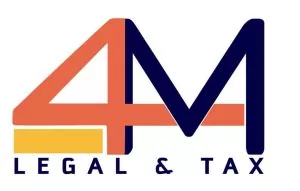Virtual currencies are not regulated in Cameroon.
Not applicable , due to the absence of legislation or regulations on virtual currencies.
Not applicable, due to the absence of legislation or regulations on virtual currencies.
Not applicable, due to the absence of legislation or regulations on virtual currencies.
Not applicable, due to the absence of legislation or regulations on virtual currencies.
There is no definition of ‘virtual currencies’, due to the absence of legislation or regulations on virtual currencies.
Initial coin offerings and security token offerings are not regulated in Cameroon and thus no definitions are provided.
Stablecoins are not treated like virtual currencies in Cameroon and do not fall under an existing category such as electronic money.
In Cameroon and the five other countries that make up the Central African Economic and Monetary Community – the Central African Republic, Chad, Congo, Equatorial Guinea and Gabon – ‘electronic money’ is considered a means of payment which constitutes a debt security embedded in an electronic instrument and accepted as payment by third parties other than the issuer.
For a stablecoin to be considered electronic money, it must fulfil the following conditions:
- be a means of payment;
- constitute a debt security embedded in an electronic instrument; and
- be accepted as payment by third parties other than the issuer.
Currently, no virtual currencies are embedded in Cameroon. However, Bitcoin is commonly used as a medium of exchange, particularly for money transfers and fiat currency/crypto trading.
The most widely used product is Bitcoin, and the services provided are money transfers and fiat currency/crypto trading.
Virtual currency service providers are generally structured as trading platforms.
Not applicable, due to the absence of legislation or regulations on virtual currencies.
Virtual currencies are not recognised within the banking sector in Cameroon and the five other countries that make up the Central African Economic and Monetary Community (CEMAC) – the Central African Republic, Chad, Congo, Equatorial Guinea and Gabon.
The mainstream adoption of virtual currencies would reduce the rate of inflation in Cameroon.
Regulation 4/18/ECMAC/COBAC on payment services in CEMAC was adopted on 21 December 2018 and entered into force on 1 January 2019. It introduced a shift from the banking model of the central bank – whereby the issuance of e-money was the sole responsibility of a credit or a microfinance institution, potentially in partnership with a technical operator (usually a mobile phone operator) – to a non-banking model, whereby the issuance of e-money can now be entrusted to non-banking institutions called electronic money institutions.
The mainstream adoption of virtual currencies in Cameroon would increase the speed of transactions, reduce the cost of services and increase efficiency in service provision.
The banking regulations in Cameroon do not contain provisions on virtual currencies.
Blockchain technology is not in itself regulated in Cameroon. However, cryptography and electronic signatures – which are essential features of blockchain technology – are regulated in Cameroon.
The adoption of virtual currencies from a technological perspective would increase the adoption of this technology and lead to the complete disruption of business models, especially for payment service providers.
There is no specific data protection regime in Cameroon. Several different laws provide for data protection. However, one of the specific objectives of Cameroon’s Strategic Digital Plan 2020 is to prepare a draft bill on the protection of personal data by the end of 2020.
Recently, the heads of state of the Economic Community of Central African States (Angola, Burundi, Cameroon, the Central African Republic, Chad, Congo, the Democratic Republic of the Congo, Equatorial Guinea, Gabon, Rwanda and Sao Tome and Principe) adopted a model law on the protection of personal data. Hopefully, this will lead to the speedy drafting of a bill on the protection of personal data in Cameroon.
At present, however, there are no specific implications for virtual currencies with regard to data protection.
In Cameroon, cybersecurity is governed by Law 2010/012 of 21 December 2010 relating to cybersecurity and cybercrime in Cameroon.
Virtual currencies are not specifically addressed in the law.
Money laundering and terrorist financing are regulated by the following instruments:
- Regulation 01/CEMAC/UMAC/CM of 11 April 2016 on the Prevention and Suppression of Money Laundering, and the Financing of Terrorism and Proliferation in Central Africa;
- Regulation 02/02/CEMAC/UMAC/CM of 14 April 2002 on the Organisation and Functioning of the Action Group against Money Laundering in Central Africa;
- Commercial Bank of Cameroon (COBAC) Regulation R-2005/01 on Diligence by Establishments Liable on Matters of Combating Money Laundering and the Financing of Terrorism in Central Africa;
- Additional Act 09/00/CEMAC-086/CCE of 14 December 2000 on the Creation of a Taskforce on Money Laundering in Central Africa; and
- COBAC Instruction I-2006/01 of 31 July 2006 on Information on the Anti-money Laundering and Counter-terrorism financing system.
Virtual currencies are not addressed in these instruments.
No consumer protection provisions apply to virtual currencies.
From a consumer perspective, virtual currencies may facilitate and increase confidence in transactions.
The specific challenges are high volatility and the alleged facilitation of criminal and terrorist activities.
There is no legislation on the taxation of transactions in virtual currencies in Cameroon.
In a statement made by the minister of post and telecommunications in the national daily Cameroon Tribune on 11 May 2018 (www.cameroon-tribune.cm/article.html/18824/fr.html/-les-crypto-monnaies-peuvent-resoudre-nos-problemes-de-developpement-), the government recognised the importance of virtual currencies and admitted the existence of certain virtual currencies in Cameroon in the following terms:
Virtual currencies are constantly developing and becoming more secure, with the ability of cryptocurrencies to limit inflation and the speed of transfer. Banks and countries are following this new trend: this is the case of Tunisia, South Africa, Uganda, West Africa (BCEAO), Zimbabwe, Kenya, Tanzania, and Nigeria today. Cameroon is not left out with its new cryptocurrency called ‘Fricacoin’ developed by a company called PAYKAP.
Equally, the government suggested that virtual currencies could be one solution to the development problems affecting Cameroon, but acknowledged the need to regulate the sector in the following terms:
the government believes that, cryptocurrencies on the Blockchain technology can solve development problems in of Cameroon, thanks to the improvement of existing instruments and the development of new efficient tools, both in the domain of finance and public management. However, the State must surround itself with all the necessary guarantees to accompany the various digital transformations with serenity and avoid any excesses in the adoption and use of crypto currencies.
Also, in 2015 the government of Cameroon tested a virtual currency, Trest, as an alternative to cryptocurrency Bitcoin in collaboration with Indian software company Trestor. However, deployment was delayed due to the energy requirements to process transactions (https://cointelegraph.com/news/cameroon-government-implements-centralized-altcoin-trest).
Several virtual currency platforms now exist in Cameroon.
These developments clearly indicate that the government recognises the importance of virtual currencies and the need to regulate them.
It is possible to program a token to be stable (stablecoin) and peg it to the euro, which has fixed parity rate with the Central African franc. The stablecoin can, for example, be considered a Central African franc token.
The Central African franc of the Financial Cooperation in Central Africa is the legal tender accepted in Cameroon and the five other countries that make up the Central African Economic and Monetary Community – the Central African Republic, Chad, Congo, Equatorial Guinea and Gabon – as provided by Article 7 of Regulation 02/18/CEMAC/UMAC/CM of 21 December 2018 on exchanges and Article 9 of the Treaty on Monetary Cooperation between Member States of the Bank of Central African States and the Republic of France.
The Central African franc is linked to the Euro by fixed parity, at the rate of CFA 1 to €0.001524. as provided by Article 7 of Regulation 02/18/CEMAC/UMAC/CM of 21 December 2018 on Exchanges and Articles 11 and 12 of the Treaty on Monetary Cooperation between Member States of the Bank of Central African States and the Republic of France.



